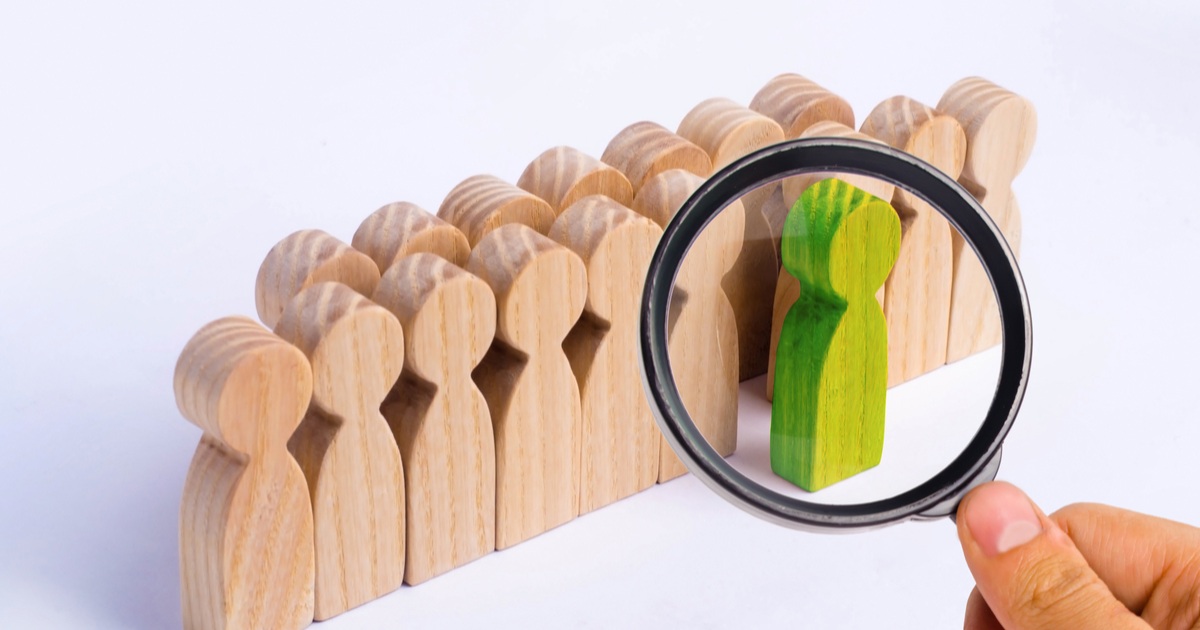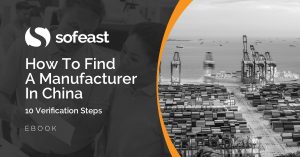A client asked us recently how to find a high-quality Chinese supplier to make their products. My partner Fabien responded, I liked his email, and I expanded on it in this article.
No magic formula for finding a high-quality Chinese supplier
There is no magic formula. There is a recipe to get there, but it is not a simple and straightforward one.
Following the right process is what will bring you from ‘no supplier’ to ‘a suitable supplier’ with the highest probability. You need to do your homework and provide the right information, and at the same time collect the right data.
What elements impact the quality of the products your suppliers will make?
Here is Fabien’s take on the process that will help you to find a high-quality Chinese supplier. Follow these points, and yourself and the prospective Chinese supplier should be in a good position to have a fruitful relationship.
Provide a clear quality standard to the supplier
That’s your job, as the buyer. What is important to you (for example, the right type of finishing, very precise dimensions…) is not what other importers need (i.e. the exact color on the logo).
If you clarify this early in the process, and they already know about it before starting work on sampling, you are raising your odds of getting what you want.
Understand the supplier’s current customer base
Especially the No. 1 customer, if you can get that information (usually that’s clearer after a factory visit). Because that’s indicative of the standard they have been shooting for and optimizing their organization for. They probably won’t be able to up their game significantly, even if you pay them handsomely.
Explore what quality systems, process controls, etc. they have
A factory that is disorganized, that only does end-of-line inspection, and that doesn’t work hard on setting up systems to prevent those issues, will struggle to deliver quality products consistently.
Provide sufficient order volume
This is important for several reasons:
- Large factories (which tend to have more stable quality) turn down small orders
- Small orders don’t justify much engineering work up front, so typical Chinese factories tend to go straight into production, let the problems come up, and (hopefully) detect and fix them. This is inherently risky.
- In many cases, low volume work tends to be done in a more manual way, and quality is less consistent.
All this is compounded if you have a supplier make a product different from what they already make. This should impact the type of supplier you work with. See our past article about OEM, ODM, and CMs.
Be aware of price’s impact on quality
The lower the price is the less margin the supplier makes, and the less interest he has in running the extra mile to get you perfect products.
In addition, in the minds of most people in China (manufacturers, traders, judges…), a buyer paying a particularly low price should not expect high quality, even if that’s what was specified. That’s common sense and basic fairness, in their eyes.
Demonstrate stable potential business
Again, the supplier will invest more time and energy if they see a clear interest in it. This is impacted by:
- Volume — see above
- Vision communicated by the buyer — I have seen some suppliers work very hard on a project after a 1-hour meeting with a potential customer (obviously a good salesperson).
- External sources of trust — you raised 300,000 USD on Kickstarter & Indiegogo, you are distributed by 3 famous supermarket chains, you sell to General Electric… All this helps.
- Experience — if they feel you have been doing this type of work for years and you know the game well, they will assume you know how to bring in large orders. A contract can help make you look more legitimate.
- Ease of business — they should feel that communicating with you is easy, they don’t want to be subject to very expensive chargebacks, etc. That’s where a contract if it is too favorable to the buyer’s side, can demotivate a lot.
What about getting a list of good factories? That must exist, right?
Yes, sure. Go to alibaba.com, search among the gold suppliers, and pick the one on top in your product category.
No, no. Just kidding. That would be slightly better than rolling the dice, in my humble opinion. Again, as I wrote above, following the right process is the most important.
There is something many purchasers can’t accept. There is no good or bad supplier in the absolute.
I wrote about this last year in How To Get a List of “Good Chinese Factories”?. Here was my illustration:
Apple works with a famous contract manufacturer (everyone has heard of them). The products they make for Apple are truly first class — in the millions of pieces, with a very fast ramp up and pretty close to zero defects.
Well, that same manufacturer also produces batches (for other customers) that would not be acceptable for sale in Walmart or Tesco, and sometimes even cheats on components. I know it because we have detected these issues while looking out for the interests of a client.
How is that possible? Well, on the one hand, Apple’s business is something they value. And, perhaps more important, Apple spends a lot of efforts validating their production & testing processes before launching mass production, not to mention all their monitoring all along production.
If, on the other hand, an unknown buyer comes in the picture, gives them a 50,000 USD order, and patiently waits for delivery, they might be disappointed. A second- (or third-) rate team will work on your order, and totally different business rules will apply.
A small buyer, in that situation, is actually better off finding and vetting an unknown manufacturer that accepts to sign a balanced contract. Since there is no particular confidence in that manufacturer, the buyer takes precautions. Trust, but make sure to verify.
What about you? Any tips for finding good Chinese suppliers that deliver quality products consistently? Please share them by leaving a comment below, or also feel free to ask any questions you may have too.
Are you trying to find a manufacturer in China who is well-suited to your needs and can also deliver on their promises?
Sofeast has developed 10 verification steps to help importers find the right manufacturing partner in China. They’re shared in this FREE eBook: “How To Find A Manufacturer In China: 10 Verification Steps.”
It covers:
- Background checks
- Manufacturing capabilities
- Quality system auditing
- Engineering resources
- Pricing, negotiation, & contracts
- …and much, much more
Just hit the button below to get your copy and put yourself in a great position to get better results from Chinese manufacturers who supply your products:


